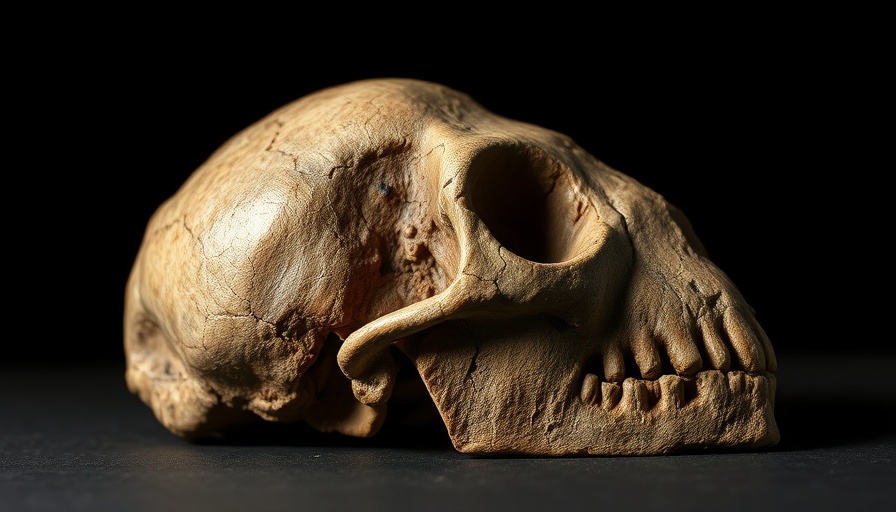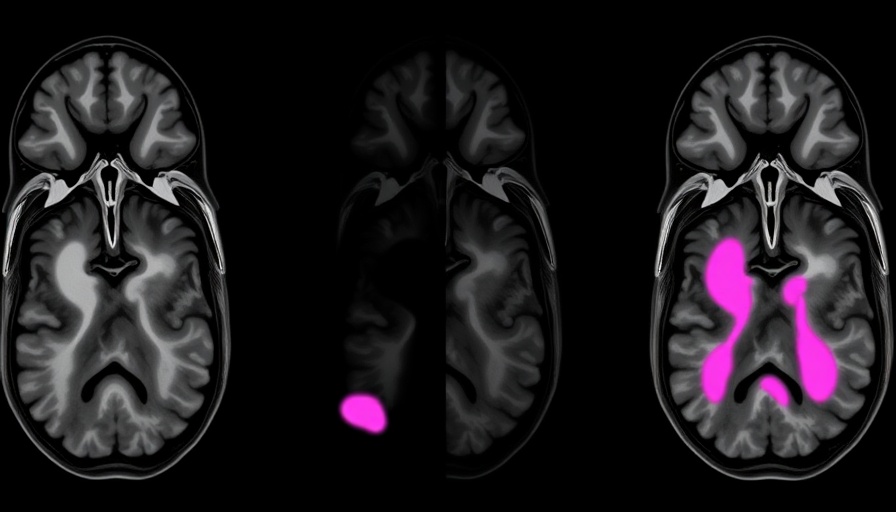
An Unexpected Discovery: What Early Fossils Reveal About Human Evolution
Newly unearthed fossils in the arid landscapes of northeastern Ethiopia have dramatically shifted our understanding of human origins. Dated between 2.6 and 2.8 million years ago, these fossils uncover a significant revelation: early members of our genus, Homo, existed concurrently with a newly identified species of Australopithecus. This discovery challenges the conventional notion of a linear evolutionary timeline and paints a more intricate picture of human evolution.
Breaking Down the Findings: The Fossils That Started It All
Researchers, under the guidance of Arizona State University, uncovered teeth from 13 hominin specimens during the Ledi-Geraru Research Project. The significance of these findings lies in their dual representation of two coexisting genera — Australopithecus and Homo — during the same epoch. This not only suggests a complex evolutionary relationship but also points to the existence of diverse hominin species living in close proximity.
Why It Matters: A Deeper Look at Evolutionary Processes
According to ASU paleoecologist Kaye Reed, this evidence significantly alters the previously held view of human evolution as a direct progression from primitive ape-like ancestors to modern humans. Instead, it suggests a bushy tree of life, with multiple branches representing various hominin species, some of which ultimately went extinct. The shedding of light on this tangled lineage encourages a reevaluation of what we know about our evolutionary past.
The Role of Technology and Collaboration in Paleontology
The Ledi-Geraru Research Project exemplifies the importance of collaboration in science. The team involved includes experts from around the world, leveraging diverse skills and knowledge to advance our understanding of human ancestry. The use of modern technologies, such as 3D imaging and isotopic analysis, is crucial for interpreting fossilized evidence and making accurate deductions about ancient life forms.
Future Outlook: What Lies Beneath the Surface?
The research team indicates that they are still on the hunt for additional fossils to fully characterize the newly identified Australopithecus species. As paleoanthropologists, their quest not only aims to fill gaps in our knowledge of the past but also offers insights into how hominins adapted to their environments. The implications of this research extend beyond mere academic interest; unraveling our evolutionary history can influence our understanding of human behavior, culture, and even societal organization.
Engaging with the Present: Connecting Evolution and Modern Life
Understanding the evolutionary roots of humanity can provide essential insights into current social structures and behaviors. In a world increasingly influenced by technology and globalization, reflecting on our shared origins can help bridge cultural divides and foster community. As residents of vibrant urban landscapes like Dallas explore their identities, they stand in the legacy of a long evolutionary process marked by survival, innovation, and adaptability.
Personal Reflection: What This Discovery Means for Us
For the diverse populations of Dallas and beyond, these scientific insights can motivate introspection about our existence and interconnectedness. This newly uncovered chapter of human history encourages us to consider the profound questions of our heritage and our role in an ever-evolving narrative. As we gather in cafes, parks, and community spaces across the city, the stories of our distant ancestors remind us of the shared human experience that transcends mere time.
Conclusion: Join the Conversation on Human Origins
This groundbreaking discovery from Ethiopia is not just a reflection of the past; it invites us into the ongoing dialogue about what it means to be human. Engage with these insights as you consider your lifestyle and community connections. Understanding our history enriches our current experiences and shapes the future we create together.
Explore further into the intricacies of human evolution and join discussions in local cultural spaces across Dallas that celebrate our shared journey.
 Add Element
Add Element  Add Row
Add Row 



Write A Comment